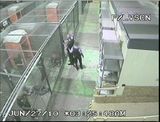
2014-08-08
By Michele Mandel
Hundreds of Torontonians detained in mass arrests during the G20 summit have been given the court’s go-ahead to proceed with their multimillion-dollar class-action lawsuits against Toronto and Peel police services, the RCMP and OPP.
In a unanimous ruling, the three judges of the Divisional Court overturned a lower court decision last May that refused to allow them to sue as a group.
The Divisional Court had surprisingly harsh words for the police if the allegations in the lawsuits are true. “If the appellant’s central allegation is proven, the conduct of the police violated a basic tenet of how police in a free and democratic society are expected to conduct themselves. Their actions, if proven, constitute an egregious breach of the individual liberty interests of ordinary citizens,” Justice Ian Nordheimer wrote on behalf of the panel.

“It is not hyperbole to see it as being akin to one of the hallmarks of a police state.”
The court ruled that the G20 complainants should be divided into two separate class-action lawsuits: One spearheaded by office administrator Sherry Good will represent the 900 people who allege they were wrongfully detained and arrested by police on the summit weekend in 2010, including those “kettled” at Queen and Spadina. “I am very pleased that we can continue to work towards police accountability for what they did to us,” Good said in a statement.
The second class-action led by Thomas Taylor will sue on behalf of the more than 800 people taken to the makeshift G20 detention facility on Eastern Ave.
“Many were held for 24 hours or more in overcrowded wire cages and in freezing temperatures without enough food or water. All of this just because we exercised our right to speak freely. Most Canadians that I have spoken with cannot believe that this happened here. It should not be allowed to happen again,” Taylor said in a press release.
None of the allegations have been proven in court.
Nordheimer served notice that the lawsuits will deal with fundamental issues of justice.
“It is important to remember that the police cannot sweep up scores of people just in the hope that one of the persons captured is a person who they believe is engaged in criminal activity,” he wrote.